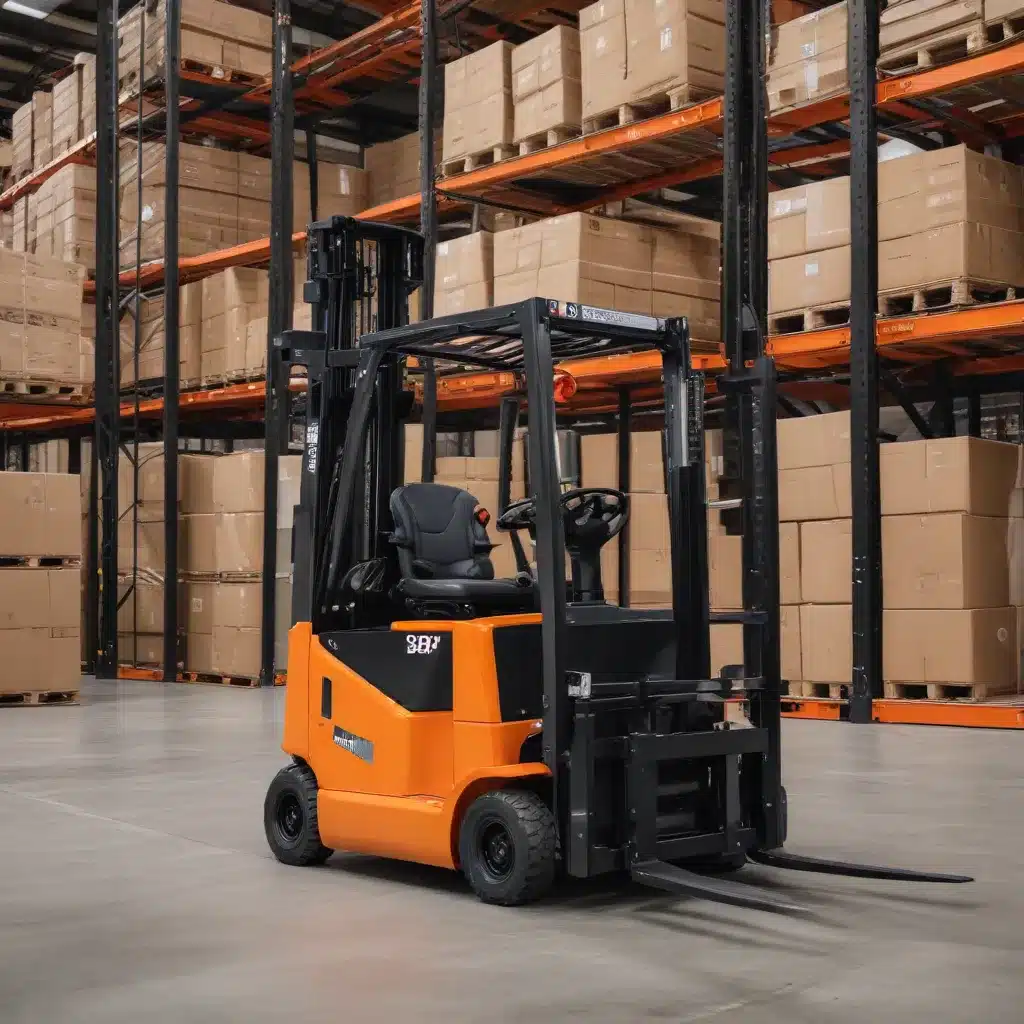
The Rise of Lithium-Ion Technology
Over the last century, internal combustion engines have dominated the global material handling market, powering forklift trucks since their inception. However, the tides are shifting as electric forklifts powered by lithium-ion batteries emerge as the new industry standard. Driven by growing environmental consciousness and the push for more sustainable practices, businesses across various sectors are increasingly seeking eco-friendly power solutions to minimize their carbon footprint.
The expansion of warehouses, distribution centers, and the implementation of warehousing and logistics automation have led to a surge in demand for operation efficiency, safety, and reduced total cost of ownership (TCO). Technological breakthroughs in battery technology have further enhanced the feasibility of battery-powered industrial applications. Electric forklifts with improved lithium-ion batteries can now operate more efficiently, with reduced downtime, less maintenance, and quieter, smoother performance.
The Lithium Advantage
According to market research, the forklift battery market was valued at $2.06 billion in 2023 and is expected to reach $2.83 billion by 2031, growing at a CAGR of 4.6% during the forecast period. Within this market, lithium-ion batteries have emerged as the frontrunner, largely redefining the battery standard in the material handling industry.
Compared to traditional lead-acid batteries, lithium-ion solutions offer several compelling advantages:
-
Higher Energy Density: Lithium-ion batteries pack more energy into a smaller, lighter package, allowing for increased runtime and improved maneuverability of forklift trucks.
-
Faster Charging: Lithium-ion batteries can be charged much more quickly than lead-acid, enabling shorter downtime and more efficient use of forklift fleets.
-
Maintenance-Free Operation: Lithium-ion batteries are sealed and do not require regular watering or equalization, reducing the burden on maintenance staff.
-
Longer Lifespan: Lithium-ion batteries typically have a lifespan of 3,000 cycles or more, compared to 1,000-1,500 cycles for lead-acid, resulting in fewer battery replacements over time.
-
Improved Safety: Lithium-ion batteries pose a lower risk of acid spills, explosive gases, and other safety hazards associated with lead-acid technology.
-
Lower Total Cost of Ownership: While the initial investment in lithium-ion batteries may be higher, the reduced maintenance costs, energy efficiency, and longer lifespan often outweigh the upfront difference, leading to significant long-term savings.
These compelling benefits have driven a surge in the adoption of lithium-ion technology across the material handling industry, with market research firms predicting a 13-15% compound annual growth rate for lithium-ion forklift batteries between 2021 and 2026.
The Continuing Role of Lead-Acid Batteries
Despite the growing dominance of lithium-ion, lead-acid batteries still have a strong presence in the forklift battery market. The high initial investment cost and concerns over the disposal and recycling of lithium-ion batteries pose ongoing challenges to the complete shift away from lead-acid technology.
Many smaller fleets and operations with limited ability to retrofit their charging infrastructure continue to rely on existing lead-acid battery-powered forklifts. Additionally, ongoing research into alternative materials and emerging battery technologies, such as hydrogen fuel cells, may introduce new players and power solutions in the future.
Technological Advancements and Industry Trends
As the electric forklift battery market continues to evolve, maintaining a competitive edge requires superior product development and strategic foresight. Key industry players are actively navigating this dynamic landscape, employing diverse strategies to fortify their market positions and cater to emerging demands.
Product innovations are a driving force, with battery manufacturers investing heavily in advanced battery management systems (BMS) that provide real-time data on battery health and performance. This data-driven approach aims to extend battery life, minimize maintenance frequency, and ultimately reduce operational costs.
The adoption of artificial intelligence (AI) and machine learning (ML) technologies in the material handling industry can further enhance the operation and maintenance of electric forklifts. By analyzing data, AI and ML algorithms can accurately predict maintenance requirements, thereby minimizing downtime and associated costs.
Additionally, the development of fast-charging technologies and wireless charging solutions are revolutionizing the material handling industry, greatly reducing downtime and increasing productivity.
Collaboration and Partnerships Fuel Innovation
As businesses seek more resources and expertise, partnerships and collaborations have become increasingly common in the electric forklift battery market. By pooling knowledge and resources, these collaborations enable faster innovation and the development of comprehensive solutions that meet evolving industry needs.
Partnerships between battery manufacturers, forklift manufacturers, and charging infrastructure providers are paving the way for new growth and expansion opportunities in the forklift battery market, especially for lithium-ion technologies.
Advancements in manufacturing processes, such as automation, standardization, and capacity expansion, have also enabled battery manufacturers to produce batteries more efficiently and at lower costs per unit. This, in turn, helps reduce the total cost of ownership for businesses, providing cost-effective solutions for their material handling operations.
The Future of Electric Forklift Batteries
The electric forklift battery market is undoubtedly poised for continued growth and transformation. As the development of lithium-ion technology progresses, the market is expected to witness further advancements and increasing adoption.
By embracing technological innovations, forging strategic partnerships, and keeping up with industry trends, the material handling industry is set to experience a new level of performance and efficiency. The transition towards eco-friendly, cost-effective, and technologically advanced electric forklift batteries will be a driving force in shaping the future of material handling operations.
Forklift businesses that stay ahead of the curve and leverage the power of lithium-ion batteries will be well-positioned to enhance their sustainability, improve operational efficiency, and achieve long-term cost savings – ultimately empowering the future of their material handling endeavors.
To learn more about the latest advancements in electric forklift batteries and how they can benefit your business, visit https://www.forkliftreviews.com/.

